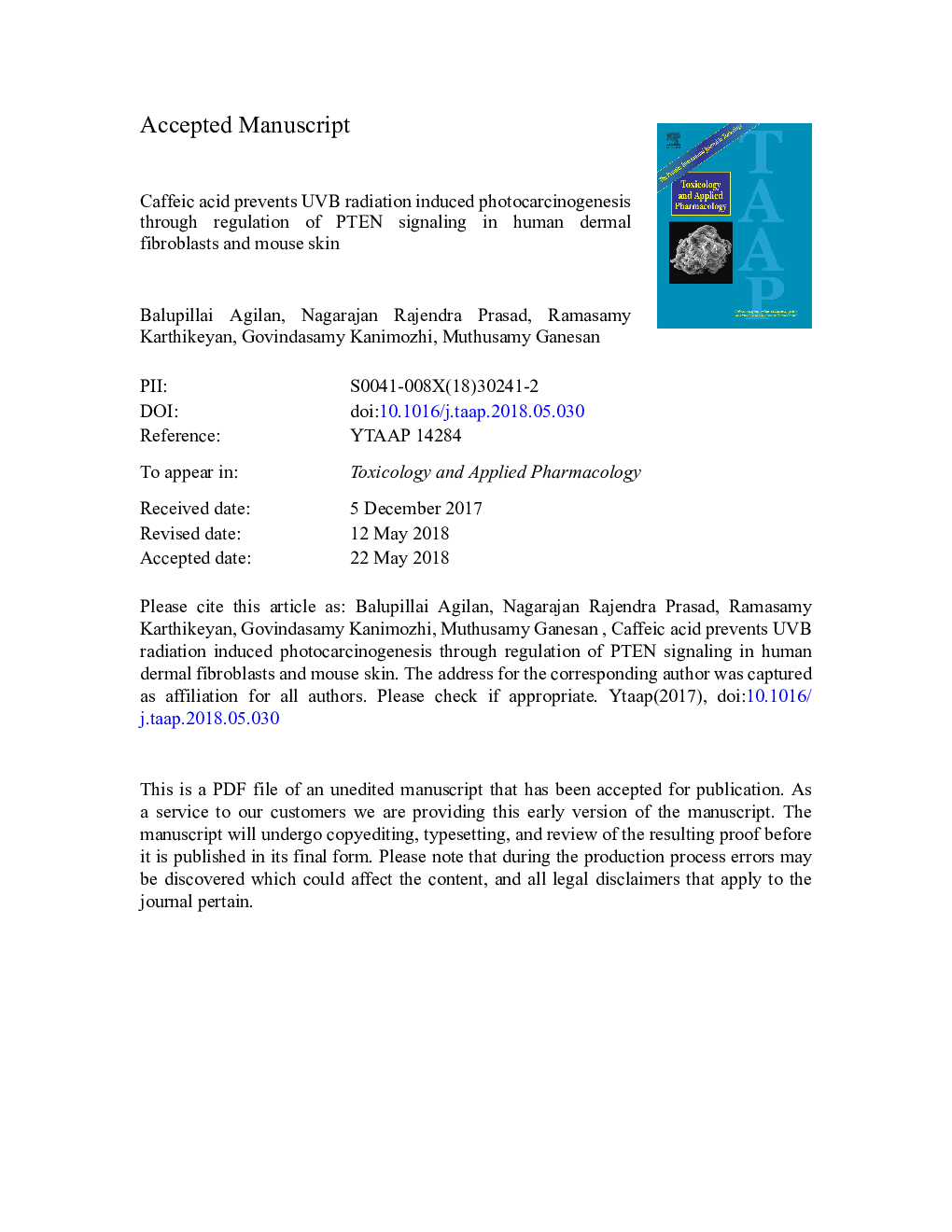| Article ID | Journal | Published Year | Pages | File Type |
|---|---|---|---|---|
| 8538370 | Toxicology and Applied Pharmacology | 2018 | 36 Pages |
Abstract
Previously, we proved that caffeic acid (CA), a major dietary phenolic acid, prevents skin carcinogenesis by modulating inflammatory signaling in mouse skin. However, the actual mechanisms of CA against UVB (280-320â¯nm) induced photocarcinogenesis remains unclear. The present results confirms that CA significantly inhibits single UVB-induced CPDs formation, oxidative DNA damage, ROS generation and frequency of apoptotic cell death in human dermal fibroblasts (HDFa). Furthermore, CA prevents UVB-induced expression of PI3K and AKT kinases through activation of PTEN which subsequently promotes XPC dependant NER proteins such as XPC, XPE, TFIIH (p44) and ERCC1 in HDFa cells and mouse skin tissue. Further, CA directly activates PTEN through hydrogen bond and hydrophobic interactions. Taken together, these findings suggest that CA prevents UVB-induced photodamage through the activation of PTEN expression in human dermal fibroblasts and mouse skin.
Related Topics
Life Sciences
Environmental Science
Health, Toxicology and Mutagenesis
Authors
Agilan Balupillai, Rajendra Prasad Nagarajan, Karthikeyan Ramasamy, Kanimozhi Govindasamy, Ganesan Muthusamy,
